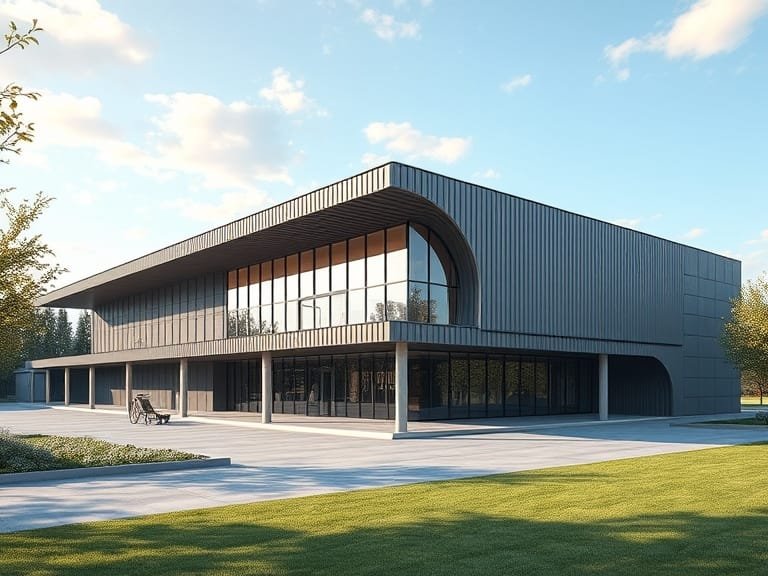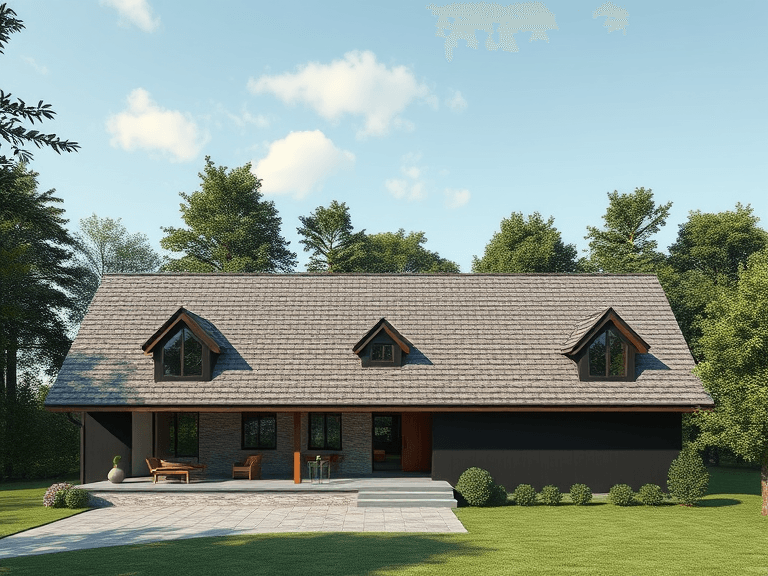
Choosing the right commercial roofing service begins with a thorough understanding of your property’s specific roofing requirements. Different factors play a significant role in determining the most suitable roofing solution for your building. The initial consideration should be the type of roofing material that best suits the building’s design and function. Common materials for commercial roofs include TPO, EPDM, PVC, metal, and built-up roofing. Each material has its advantages and drawbacks regarding cost, longevity, and maintenance needs.
Another crucial factor is the architectural design of the building. Flat roofs often require different maintenance and repair approaches than sloped roofs. Understanding the geometry of your roof can guide you in selecting a service that specializes in your particular design. Local climate conditions must also influence your decision. Areas subject to heavy rainfall, snowfall, or intense UV radiation may necessitate more durable materials and specific installation techniques to withstand environmental pressures effectively.
Assessing the age and condition of your existing roof is equally essential. An older roof may show signs of wear and tear, leading to leaks or energy inefficiencies. A thorough inspection can help you determine whether your roof requires repairs or a complete replacement. In some cases, minor repairs might extend the roof’s life significantly, while other situations may justify a full replacement to ensure long-term stability and safety.
Overall, gaining a comprehensive understanding of these factors will position you to make informed decisions when selecting the right commercial roofing service. Each commercial property is unique, and catering your choices to its specific needs is imperative in ensuring the success and longevity of your roofing solution.
Researching Local Roofing Services
When it comes to choosing the right commercial roofing service, adequately researching local options is essential. The quality and reliability of a roofing contractor can significantly influence the longevity and performance of your roofing system. Start by utilizing online directories that list roofing services in your area. Websites such as Yelp, Angie’s List, and Google My Business provide insights into local contractors and often include customer reviews and ratings that can help identify reputable companies.
Customer reviews play a pivotal role in the decision-making process. Investigating past clients’ experiences can reveal crucial information regarding the contractor’s reliability, work quality, and customer service. Look for patterns in the feedback, focusing on comments related to commercial roofing projects specifically, as this can indicate the company’s specialization and expertise in the area. Engaging with local business forums or community boards can also yield valuable recommendations from fellow businesses that have had similar services performed. These platforms often provide a more personal touch, allowing you to ask specific questions regarding the contractors’ performance.
Additionally, it is crucial to focus on services that specialize in commercial roofing rather than those that primarily handle residential projects. Although some contractors may offer both residential and commercial services, those who specialize in commercial roofing have the necessary skills, materials, and experience tailored to the distinct requirements of commercial properties. This specialization is crucial as commercial roofing projects often involve different materials, regulations, and techniques compared to residential roofs. By concentrating your search on local specialists, you can enhance the chances of selecting a contractor who is well-versed in commercial roofing service standards and procedures, ensuring a high-quality result.
Evaluating Credentials and Experience
When it comes to choosing the right commercial roofing service, evaluating the credentials and experience of potential contractors is crucial. One of the primary credentials to look for is a valid license issued by the state or local regulatory authority. This license not only indicates that the contractor possesses the necessary skills and knowledge to perform roofing work, but it also ensures compliance with local building codes and regulations.
Another critical credential is insurance coverage. A reputable commercial roofing service should have liability insurance to protect against any accidents or damages that may occur during the project. This coverage ensures that you are not held financially responsible for injuries to workers or damages to your property. Additionally, worker’s compensation insurance is essential, as it protects you in case a worker is injured while on your premises.
Bonding is also an important credential showcasing a contractor’s financial stability. A bonded contractor means that they are backed by a surety company, which guarantees that they will complete the work as agreed. This level of assurance can protect your investment and provide peace of mind as you undertake your roofing project.
Experience plays a significant role in the effectiveness of a commercial roofing service. Evaluating both the number of years a contractor has been in business and their experience with specific roofing types can offer insights into their capabilities. A contractor with extensive experience is more likely to handle challenges proficiently and deliver quality workmanship. Moreover, familiarity with a range of materials and techniques allows them to provide tailored solutions that meet your unique needs.
In essence, a careful evaluation of credentials and experience is paramount for securing a reliable roofing partner. By prioritizing these factors, you help ensure that you are choosing the right commercial roofing service for your project.

Assessing Quality of Materials
When it comes to choosing the right commercial roofing service, the selection of roofing materials plays a crucial role in ensuring durability, cost-effectiveness, and energy efficiency. Various types of materials are available for commercial roofing, each with its unique characteristics and benefits. Among the most commonly used materials are TPO (Thermoplastic Olefin), EPDM (Ethylene Propylene Diene Monomer), PVC (Polyvinyl Chloride), and built-up roofing systems.
TPO and PVC membranes offer excellent energy efficiency due to their reflective properties, which can help reduce cooling costs for commercial properties. These materials are lightweight and easy to install, making them an attractive option for many businesses. However, while they may have a lower upfront cost, it’s essential to consider their lifespan and potential long-term maintenance needs. Typically, TPO and PVC systems can last between 15 to 30 years when properly maintained.
On the other hand, EPDM is known for its resilience and ability to withstand harsh weather conditions, making it a popular choice among commercial property owners. This rubber roofing material is generally more cost-effective, yet its black color can absorb heat, which may lead to higher energy costs in warmer climates. Understanding these nuances is critical when choosing the right commercial roofing service, as the longevity of the material will directly affect your overall satisfaction with the roofing solution.
Built-up roofing systems, which consist of multiple layers of bitumen and aggregate, provide excellent durability and insulation. While they can entail a higher initial investment, they often lead to lower maintenance costs and extended lifespans. Choosing high-quality materials not only enhances the structural integrity of the roofing but also minimizes potential issues such as leaks or degradation over time.
Evaluating the quality and characteristics of these materials is imperative for long-term satisfaction with your commercial roofing project. Therefore, consulting with your roofing service provider about the available options and their respective maintenance needs will ensure an informed decision based on your property’s specific requirements.
Reviewing Portfolios and References
When selecting the right commercial roofing service, it is essential to thoroughly review their portfolios and request references. A reputable roofing contractor should be eager to showcase their previous work. Start by examining their portfolio for completed projects that closely align in size and scope with your needs. This examination is crucial, as it enables you to evaluate their experience in handling similar roofing systems and materials. It also provides insight into the contractor’s design capabilities and workmanship quality.
In addition to reviewing portfolios, asking for references is an important step in your evaluation process. When you receive a list of past clients, take the time to contact them. In your conversation, inquire about their overall experience with the roofing service, focusing on specific aspects that affect durability and longevity. Key questions might include queries about project timelines: Did the contractor complete the project on schedule? In terms of workmanship, how satisfied were they with the final product? Also, ask about the contractor’s customer service: Were they responsive and communicative throughout the project? Did they address any issues that arose promptly and effectively?
Furthermore, it is wise to inquire if the roofing service adhered to pre-established budgets. A trustworthy contractor should provide a detailed and transparent estimate, including the scope of work and potential unforeseen costs. Additionally, affirm whether the contractor offered any warranties or post-installation support, which showcases their commitment to quality and customer satisfaction.
By systematically reviewing portfolios and requesting references, you can confidently assess potential roofing services. This diligence will aid you in making an informed choice, ensuring that your commercial roofing project receives the expertise it deserves.
Getting Multiple Quotes
When embarking on the journey to select the best commercial roofing service, acquiring multiple quotes from various providers is a crucial step. This practice not only helps you understand the market rates but also allows you to evaluate the range of services and expertise that each roofing service can offer. Typically, it is advisable to gather at least three to five quotes to obtain a well-rounded view of the available options.
Once you have received the quotes, it is important to analyze them meticulously. Look beyond the price tag; focus on the specifics of the services included in each quote. Assess whether the roofing service provides a detailed breakdown of costs associated with labor, materials, and any additional services, such as removal of the old roof or cleanup. Warranties should also be a significant factor in your decision-making process. Compare the length and coverage of warranties offered, as these can indicate the quality and durability of the materials used and the workmanship.
Furthermore, consider the payment terms outlined in each quote. Some roofing services may require a substantial upfront payment, while others might offer flexible payment plans. Understanding these terms can significantly affect your cash flow and should be an integral part of your evaluation process.
It is essential to avoid the common pitfall of solely choosing the lowest bid. While cost is undoubtedly a vital factor, selecting a roofing service based purely on price can lead to potential problems down the line, such as inadequate workmanship or subpar materials. Therefore, a comprehensive analysis of all the quotes, emphasizing services offered, warranties, and payment options, will enhance your chances of selecting the right commercial roofing service that meets your needs and budget effectively.
Understanding Service Warranties and Maintenance Packages
Choosing the right commercial roofing service involves a thorough understanding of service warranties and maintenance packages, as these offerings can significantly impact the longevity and performance of your roofing investment. Typically, warranties associated with commercial roofing projects vary in duration and coverage, often ranging from 5 to 30 years, depending on the materials used and the contractor’s policies. These warranties generally fall into two categories: material warranties, which cover defects in the roofing materials, and workmanship warranties, which guarantee the quality of installation.
It is essential to scrutinize what is included in these warranties. Some warranties may cover replacement or repair costs, while others might only provide a refund for the material cost. Understanding these distinctions can aid in evaluating which commercial roofing service aligns best with your long-term needs. Additionally, ensure that the warranty is transferable; this may enhance the roof’s resale value, appealing to prospective buyers and investors in the future.
Alongside warranties, maintenance packages play a crucial role in preserving the integrity of your roof. Regular maintenance, such as inspections and preventative repairs, can help identify potential issues early, thereby extending the roof’s lifespan and minimizing overall costs. A proactive approach can also safeguard against weather-related damage and other unforeseen liabilities. When considering a roofing contractor, inquire about the routine maintenance services they offer and their associated costs.
Ultimately, evaluating service warranties and maintenance packages should be an integral part of your decision-making process when selecting the right commercial roofing service. The right combination of warranty coverage and regular maintenance can optimize your roofing investment, ensuring it provides protection for years to come.
Preparing for the Roofing Project
Once the decision has been made and a contractor selected for the roofing project, the next step is effective preparation. Proper preparation is essential to ensure the project runs smoothly and meets your expectations. One of the first steps in this process is obtaining the necessary permits. Depending on local regulations, specific permits may be required before any roofing work can commence. It is advisable to collaborate closely with your chosen commercial roofing service to understand the permit requirements and facilitate their acquisition.
Furthermore, discussing safety protocols is paramount during this preparatory phase. A reputable commercial roofing service will have established safety measures to protect both workers and building occupants. Engaging in a dialogue about these safety protocols not only helps in understanding the procedures in place but also ensures that all stakeholders are aware of the potential hazards and the strategies in place to mitigate them. This dialogue fosters a shared commitment to safety, which is crucial in any construction environment.
Another important aspect of preparation involves informing tenants or employees about the impending roofing project. Clear and effective communication is key in this regard. Notify all affected individuals well in advance about the project schedule, expected disruptions, and any necessary precautions they may need to take. This transparency not only reflects professionalism but also helps in minimizing inconvenience for all parties involved. Keeping communication lines open with the contractor throughout this phase is vital. Regular updates regarding schedule changes and progress can help in managing expectations and addressing concerns promptly. Thus, effective preparation combined with ongoing communication contributes significantly to the overall success of the roofing project, making it an integral part of choosing the right commercial roofing service for your needs.
Final Thoughts and Recommendations
Choosing the right commercial roofing service is a critical decision that can significantly impact the longevity and performance of your building. Through the preceding sections, we have emphasized the importance of conducting thorough research and evaluating potential contractors meticulously. Engaging in this process is not merely a formality; it is fundamental to ensuring that your roofing service meets both your needs and industry standards.
Firstly, it is crucial to gather multiple quotes and thoroughly analyze the services offered by various providers. Look beyond pricing; instead, assess the quality of materials and warranties provided. A cheaper option may appear enticing initially, but it could lead to greater costs down the line if the roofing issues are not adequately addressed. Moreover, look for roofing services that demonstrate a strong reputation and have substantial experience in handling commercial projects similar to yours.
Equally important is proactive communication with potential roofing contractors. Discuss your expectations and inquire about their recommended approaches to your specific roofing needs. A reputable service will be willing to provide you with detailed explanations and transparent timelines, which will help you gauge their reliability and expertise. Asking for references from past clients can further solidify your choice and give insights into the contractor’s work ethic and service quality.
Lastly, remember that investing time and effort into selecting the right commercial roofing service today can lead to substantial savings and peace of mind in the future. A well-executed roofing project not only protects your commercial property but also enhances its overall value. Therefore, approach your decision-making process with diligence and confidence, ensuring that you choose wisely for the health of your property.


